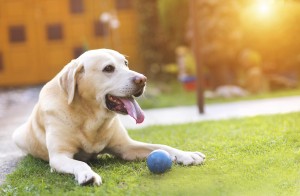Posts Tagged: Senior Pets
Is Your Senior Cat Lonely?

There are different reasons to consider adopting another cat, but if you already have an aging feline at home you’d be correct to take pause over the decision. It’s possible your senior cat is out of sorts if they’ve recently lost a friend or littermate, but introducing them to another pet won’t replace their buddy. What’s more, the situation could be fraught with territorial tension that could profoundly stress them out.
All this doesn’t mean your cat wouldn’t benefit from another pal. Instead, with a lot of love, patience and encouragement it could be the best choice of all.
Continue…Special Care for Senior Cats: How to Provide Some Extra TLC For Your Senior Cat

It used to be that an eight year old cat was considered a senior. But with better nutrition, indoor living, and preventive health care, cats are now regularly living into their teens and twenties. Making that time together the best it can be is one of our most important goals at Leon Valley Veterinary Hospital.
Senior cats do tend to be less active and playful, have a harder time getting to their favorite places, and may lose weight. Don’t chalk up behavior or health changes to old age, however. Getting older is not a disease, and physical changes can be often be attributed to health problems and/or dental problems that we can address and treat.
Aging in Cats
Because aging changes happen gradually – without you even noticing them, perhaps – we recommend seeing your older cat twice per year so that we can catch small problems and treat them before they become advanced. Cats are masters at hiding signs of disease, so the quicker we catch these problems, the better your cat can feel.
Special Care for Senior Cats
In addition to routine preventive care exams, there are some simple things you can do to help your cat enjoy her golden years.
Some like it warm – cats like warm places, so make sure your senior cat has a bed or other comfortable resting spots in a warm part of your house. They may have more trouble moving away from discomfort, however, so think warm, not hot.
Easy access – senior cats may have trouble getting to food, water, and their litter box if these places are accessed by stairs, high on perches, or even behind a baby gate or a cat door. Arthritis may play a role as well. Pay attention to any eating, drinking, or litter box changes and assess whether difficulty getting there is having an impact.
It’s a good idea to have a litter box on each floor of your home for easy access, since older felines may also have reduced control over bowels and bladder.
Help her get there – senior cats love their special places but may have trouble getting up to a favorite window sill or perch. You can create box steps or a ramp for cats who can no longer jump up to their special spot. Make sure footing is secure and non-slip.
Gentle grooming – senior cats can benefit from a little help from you in the grooming department. Use a soft brush to remove loose hairs and stimulate circulation. Plus, it just feels good for your cat, and improves your bond. Keep in mind that a sudden lack of grooming may signal a health problem.
Play – although getting a rambunctious kitten for your older cat is not recommended, keep your senior playful with a feather wand, playing “fetch” with dry kibble, or mixing up crinkle mice toys with other novel toys.
Night light – older cats may have waning vision, so you can install a night light for her to help her get her bearings at night. If your cat is blind, try to keep her surroundings consistent (by not moving furniture).
Attention to the basics – good nutrition is important for cats at any stage of life. But senior cats can benefit from a little attention to this necessity. A high quality diet has been shown to improve health and longevity, so talk to us about the best fit for your cat.
Creatures of routine – just like older people, older cats can derive comfort from their normal daily routine. Senior cats may become more dependent on relationships, so make sure to carve out some time every day to spend quality time with her.
As our cats age, they can definitely benefit from a little extra TLC. Special cats (and they are all special, in our book!) deserve special senior care. If you have any questions or need assistance with any of the ideas above, please don’t hesitate to call us. We’re here to help you make your cat’s golden years the best they can be!
Boning Up On Senior Pet Health

If cats and dogs aged at the same rate that humans do, we’d be able to live with our best friends for much longer. Unfortunately, they age about 7 times faster than us, or approximately 7 years for every one of ours.
The good news is that with routine preventive care and early screening of age-related diseases, senior pets over the age of 7 years old are living longer, more complete lives. Growing older is a natural part of life, and with a proactive approach to senior pet health, special pets can live far into their golden years.
Hearts of Gold: Adopting a Senior Pet
 Many animal lovers are aware of the fact that senior pets are often the last to be adopted, remaining in shelters for weeks, months, or even longer.
Many animal lovers are aware of the fact that senior pets are often the last to be adopted, remaining in shelters for weeks, months, or even longer.
That’s why our team wants to take a moment to highlight how wonderful adopting a senior pet can be. They bring so much love and happiness to a home – we know you won’t regret your decision!
Senior Pet Care For Seasoned Pet Owners
 We are all too familiar with that singular moment of disbelief when – for the first time – a pet starts to show signs of getting older. Since when did Fido shrug off a walk along the river? Was Fluffy’s face that grey (or white) just yesterday? While changes can certainly occur overnight, it’s more common for distinct age-related symptoms to surface over a period of time. Plus, many pets are hardwired to mask illness, keeping you in the dark as long as possible. Continue…
We are all too familiar with that singular moment of disbelief when – for the first time – a pet starts to show signs of getting older. Since when did Fido shrug off a walk along the river? Was Fluffy’s face that grey (or white) just yesterday? While changes can certainly occur overnight, it’s more common for distinct age-related symptoms to surface over a period of time. Plus, many pets are hardwired to mask illness, keeping you in the dark as long as possible. Continue…
Helping Your Senior Pet Through the Summer Heat
 Almost every pet – and older pets in particular – loves to find a sunny spot for a nap and well-deserved stretch. After spring rains, the urge for a senior pet to get outside for the welcomed warmth and low key exercise is understood, too. However, senior pets are often more at risk for heatstroke and heat-related stress.
Almost every pet – and older pets in particular – loves to find a sunny spot for a nap and well-deserved stretch. After spring rains, the urge for a senior pet to get outside for the welcomed warmth and low key exercise is understood, too. However, senior pets are often more at risk for heatstroke and heat-related stress.
Just as you might take a slower or modified approach to your daily exercise choices as you age, helping your older fur friend cope with the stress of the sizzling summer days requires forethought and a bit of adjustment. Continue…
Winter Care for Senior Pets
 Winter provides lots of delights for pets and their humans. For many senior pets, though, the colder months provide nothing more than extra pain, discomfort, or unhappiness. Age-related illnesses or diseases have symptoms that colder temperatures exacerbate, and senior pets can suffer from respiratory or cardiac conditions, malnutrition, or depression. Even here in Texas, where the winters tend to be mild, the shift in temperature can affect senior pets, and shouldn’t be discounted.
Winter provides lots of delights for pets and their humans. For many senior pets, though, the colder months provide nothing more than extra pain, discomfort, or unhappiness. Age-related illnesses or diseases have symptoms that colder temperatures exacerbate, and senior pets can suffer from respiratory or cardiac conditions, malnutrition, or depression. Even here in Texas, where the winters tend to be mild, the shift in temperature can affect senior pets, and shouldn’t be discounted.
Leon Valley Veterinary Hospital is here to eliminate any guess work you may have by addressing some of the specific concerns facing your senior pet. Continue…


